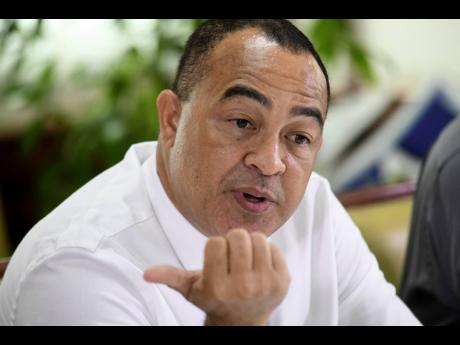No need to panic, health officials insist
WESTERN BUREAU:
Like a case of déjà vu, Jamaica’s first monkeypox case was confirmed yesterday in a patient travelling from the United Kingdom, two years and four months after the island’s first COVID-19 case was detected in a visitor from the European country.
Yesterday, Health and Wellness Minister Dr Christopher Tufton sought to assure the nation that there was no reason to panic, noting that it was business as usual in terms of the functioning of the economy.
Tufton said that the ministry has a duty to inform the country of such matters of importance, “but it is not intended to cause anyone to be unduly alarmed”.
Instead, he said, awareness was needed to emphasis the role of personal responsibility to guard against transmission and to heighten the level of observance to detect suspected cases early.
The Gleaner understands that the patient confirmed with the virus is from Clarendon and arrived from the UK less than a week ago.
Without giving specifics in relation to the patient, Chief Medical Officer (CMO) Dr Jacquiline Bisasor McKenzie said that contact-tracing had begun and that the man was in isolation and his close contacts in quarantine.
She said that the public health team does not anticipate any risk to the communities involved.
Moreover, Bisasor McKenzie said that monkeypox was a mild disease that requires very close contact for transmission and was quick to discourage any argument that the virus was passed on through sexual intercourse.
“We will do our work to ensure to minimise the chance of spread to the population,” the CMO noted as she emphasised the importance of reporting and immediate isolating once a person is believed to have contracted the disease.
Like the health minister, she said that panic could only lead to chaos, noting that responsible behaviour is what is needed at this time.
“Once we follow the protocols, we should we should be able to work our way through it,” she said.
Only one case of monkeypox had been confirmed in the island up to the time of yesterday’s briefing, Tufton said.
Jamaica is the second CARICOM country to confirm a case of the virus. St Lucia had a positive patient two weeks ago.
Monkeypox cases have been discovered in dozens of non-endemic countries since May.
Understanding monkeypox
What is it?
Monkeypox is a viral disease caused by the monkeypox virus MP XV. The first human case was confirmed in a child in the equatorial region of the Democratic Republic of Congo in 1970. Since then, sporadic cases have been reported from the rainforest areas of Central and West Africa, while large outbreaks have occurred mainly in the Democratic Republic of Congo, where the disease is currently considered endemic.
How is it spread?
The spread of monkeypox may occur when a person comes into close contact with an infected animal or rodents. Person-to-person spread is generally uncommon but can occur through direct contact with monkeypox skin lesions or scabs. Contact with clothing, bedding, towels used by an infected person coughing or sneezing of an individual with a monkey pox rash may spread the disease.
The virus enters the body through broken skin, even if not visible; the respiratory tract or the mucous membranes, eyes, nose or mouth. The incubation period is between five and 21 days. Symptoms are usually mild to moderate and include fever, intense headache, swelling of the lymph nodes, back pain, muscle ache, general lack of energy, or a rash.

